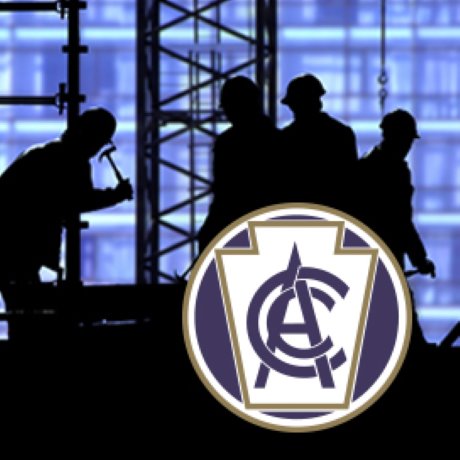The issue of prompt payment is evolving across the country.
There are moving parts at play in many provinces and at the federal level that will impact the construction industry, said Gilbert Brulotte, chair of the Canadian Construction Association (CCA) during its spring board meeting in Halifax, N.S.
"We’re starting to get some solutions," he stated.
"So it will help the building blocks on where it goes next."
The CCA moved forward on the issue of prompt payment in 2015 during its October fall boarding meeting in Thunder Bay, Ont. A motion was approved stating the CCA was to work with its partner associations, interested stakeholders and federal contracting authorities to educate the federal government on the importance of prompt payment and cash flow on federal construction projects.
Since then the CCA’s Task Force on Federal Prompt Payment has taken the matter to the federal government, seeing success at the 50th annual joint meeting of the CCA and the government of Canada on federal construction procurement and contracting practices, held April 11 in Meech Lake, Que.
Federal government representatives agreed to continue the discussion with the association through a joint working group.
"There’s more to it than just meeting contractual obligations, they can lead the industry by example," explained Ray Bassett, chair of the task force.
Both the government and the CCA task force are slated to report back in October with an update.
"It’s not just what the federal government can do, it’s what we can do," added CCA president Michael Atkinson, stating getting the definition of prompt payment down pat was also vital to the discussion.
"It’s not just paying according to your contract. It’s having fair payment practices to begin within your contract — ensuring that the payment provisions we have in our contracts, legislative or otherwise, are in fact fair and that they are replicated down the whole supply chain."
Also taking place at the national level is Bill S-224, the Canada Prompt Payment Act, which was introduced at second reading in the Senate on April 19. Bill S-224 "ensures that the government institution must make progress payments to a contractor on a monthly basis, or at shorter intervals provided for in the respective contract. This payment requirement is consistent down the contractual chain."
The CCA also plans to monitor the bill’s status.
But movement isn’t just happening at the federal level. Several provinces are also taking a look at prompt payment.
During the CCA’s Vertical Building Forum, Ken Gibson, executive director of the Alberta Construction Association (ACA), shared what progress has been made with Alberta Infrastructure (AI).
"They have introduced contract language and it mandates a specific time in which they will pay, it mandates progressive release of holdback," he said.
In April, AI made several key changes to its contracts:
– the contract now specifies a maximum of 30 days after the initial receipt of the application for payment, provided the contractor has properly completed their claim;
– amounts that are not in dispute will be paid and disputed amounts will be resolved during the next invoice period;
– AI has committed to publicizing the date of payment so subcontractors and suppliers will be aware of when the prime contractor was paid; and
– upon appropriate application, holdback funds will be released once the portion of the work is complete.
AI also modified the statutory declaration so that the general contractor must confirm they paid their subcontractors within 10 days of receiving payment.
"In terms of addressing the contractual chain and the transparency for those further down the contractual chain, Alberta Infrastructure really wrestled with actually mandating it," Gibson added. "They decided they really couldn’t because that opened up unintended consequences. They don’t have a contract with folks other than the general contractor."
However, AI did implement a 1-800 number and an email service where subs can inquire to see the date each progress pay occurred.
"We do have a commitment from Alberta Infrastructure for quarterly reporting because we actually want to track whether people will be making inquiries," Gibson added.
Although the process is relatively new, as of mid-June there were 15 contracts issued with the new prompt payment language.
AI will also be conducting random audits where they will call a sub and check-in to make sure they are getting paid.
This move by AI and the ACA is getting attention from the cities of Edmonton and Calgary where their respective construction associations are trying to move forward with similar practices.
"Our strategy in Alberta…has been to take what we now have as a contractual model from AI and lobby public sector owners," said Gibson. "There’s an opportunity to share the experiences that are happening so far."
In Quebec, prompt payment is also on the agenda, albeit in a slightly different way.
"The situation is a little bit different between the government and the industry," explained Pierre Hamel, director of legal and government affairs with the Association de la construction du Québec (ACQ). "The most important aspect for the government is that there are less and less companies that want to bid with government because they are not paid on time."
Quebec’s Charbonneau Commission, which was tasked with investigating corruption in Quebec’s construction industry, paying particular attention to the management of public contracts, released a report last year with 60 recommendations. Among them was one pertaining to prompt payment, Hamel stated.
The recommendation stated that the Quebec government should, "adopt legislative or regulatory provisions in order to propose, as part of a prime contract and subcontracts, a standard production time progressive statements and payments to reduce the influence of site supervisors and public owners on businesses in the construction industry as well as the possible infiltration of organized crime."
"The more it’s difficult to get payment, the more you are vulnerable for collusion, corruption," added Hamel. "The population in Quebec wants to ensure these recommendations may be applied extensively. This is our leverage because government made another statement that they will adopt all the recommendations of commissioner Charbonneau."
Next door, the province of Ontario is currently in a holding pattern when it comes to addressing prompt payment.
Bruce Reynolds, the construction law expert appointed in February 2015 to lead a review of Ontario’s Construction Lien Act, along with his co-counsel Sharon Vogel, were invited to speak at the Vertical Building Forum with the intent of speaking about the review and its recommendations.
However, the report, which was handed over to the Ministry of the Attorney General and the Ministry of Economic Development, Employment and Infrastructure at the end of April has not been released. A spokesperson from the attorney general told the Daily Commercial News in early May that it would not be released until "we take the time to carefully consider this expert advice."
For Brulotte, with so many uncertainties, the future of prompt payment across the country remains to be seen.
"You’ve got the Reynolds report and you’ve got the legislation in the senate," he added. "What happens to those two files over the next three months will also impact our path forward."











Recent Comments
comments for this post are closed